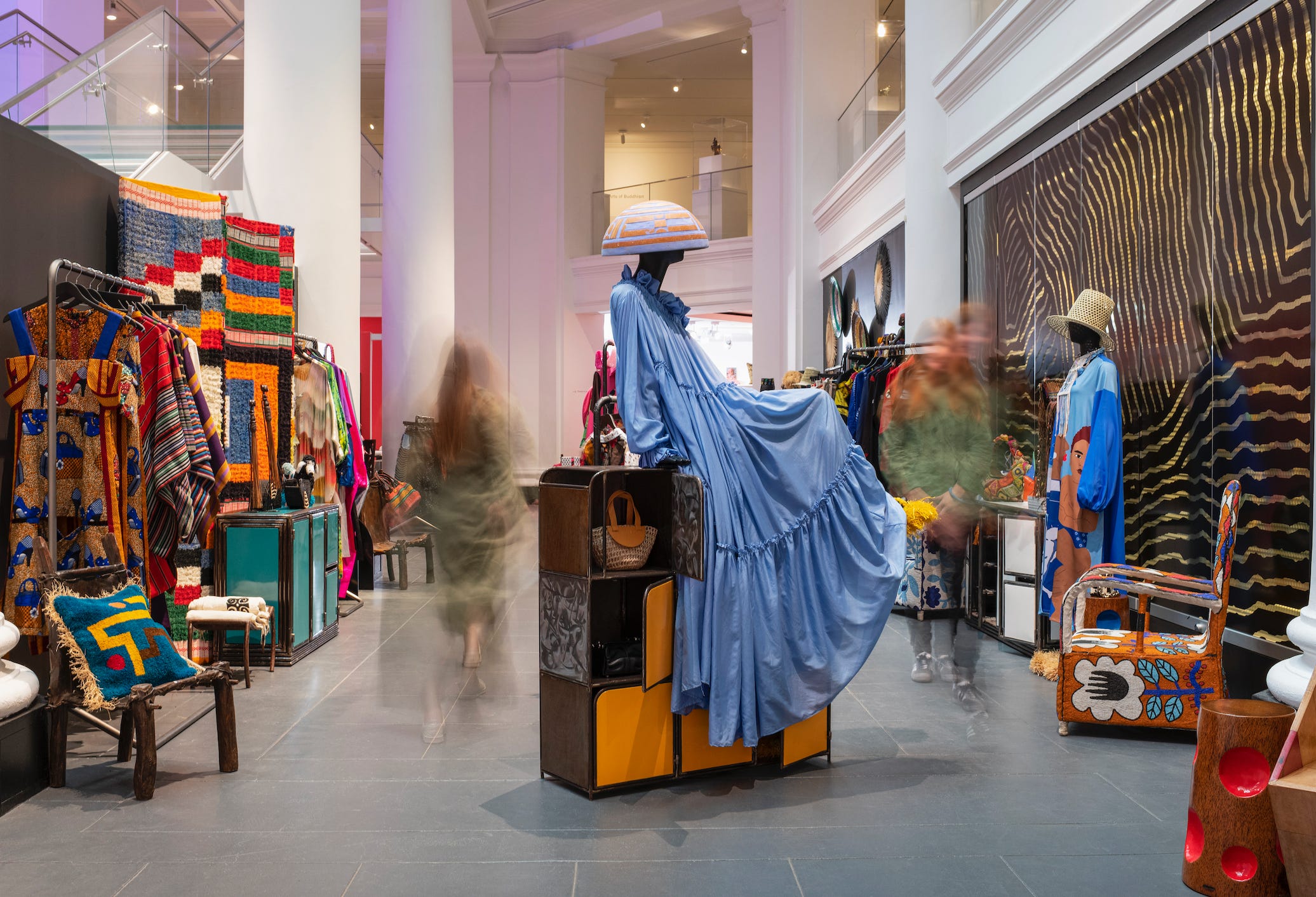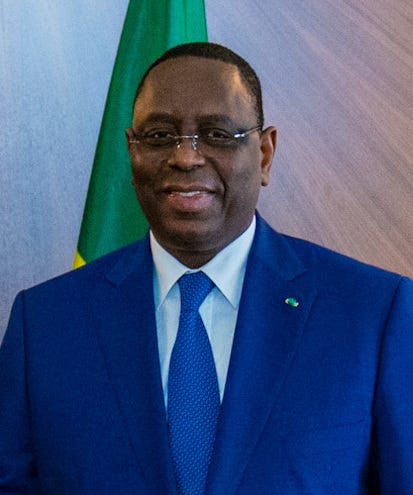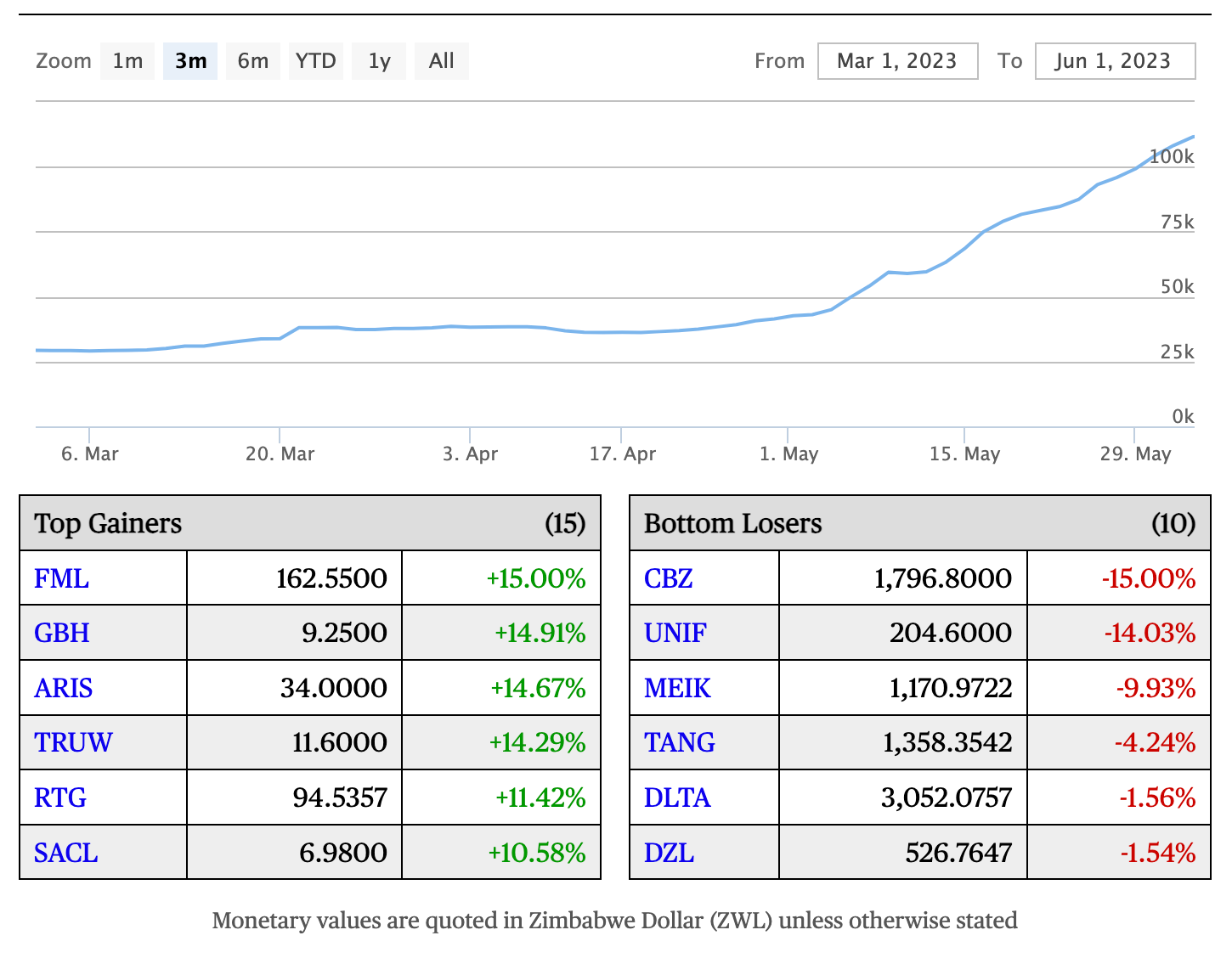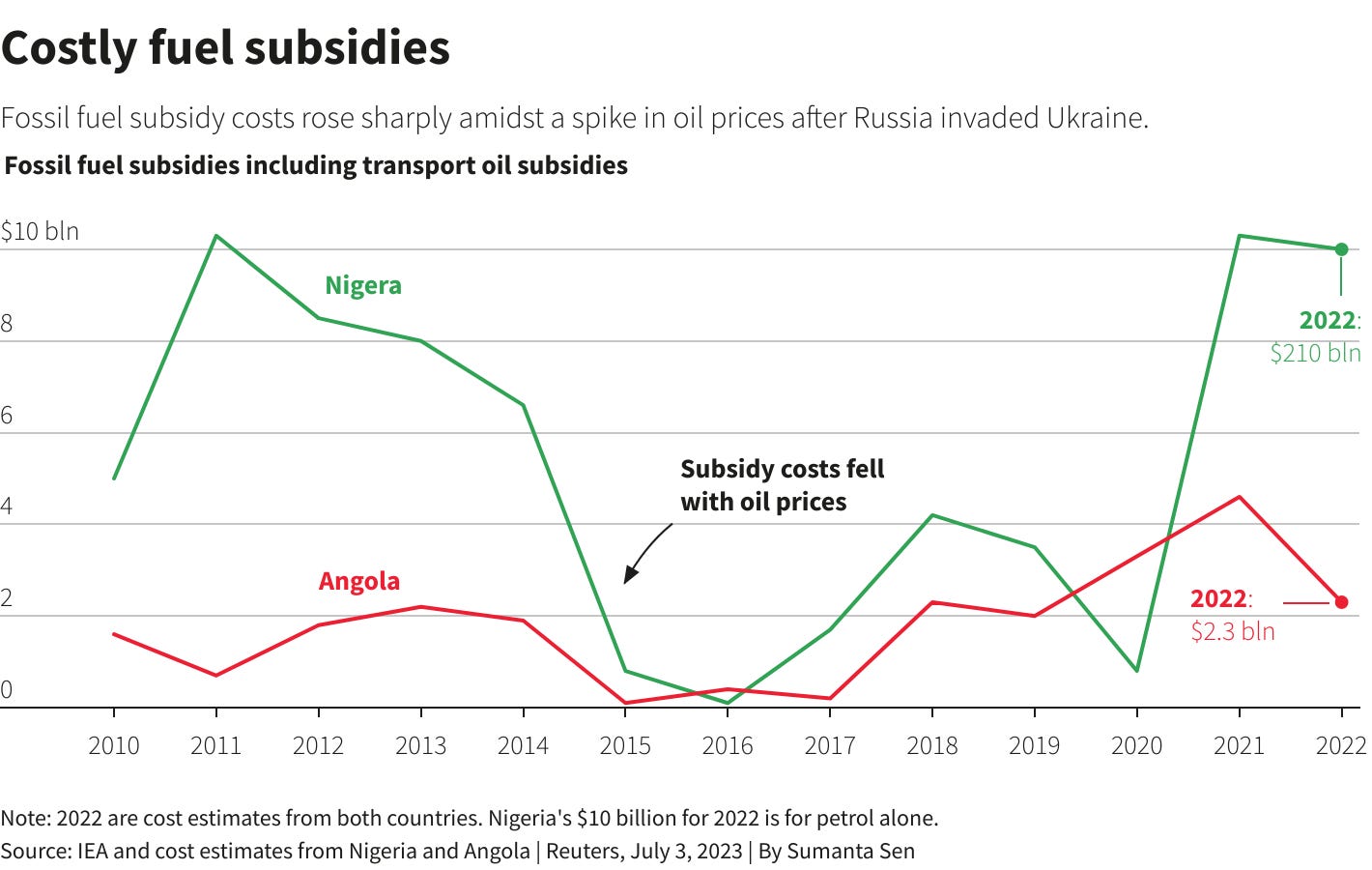🔅 America's Biggest "Africa Fashion" Exhibit, Senegal's President Calls It Quits, And Much More
Plus, Zimbabwe's Stock Market Rush & Fossil Fuel Subsidies in Africa
Photo of the day: Gabon

Markets:
🟢 Nigerian SE: 61,948.99 (+1.61%)
🟢 Johannesburg SE: 76,027.83 (+0.26%)
🟢 Ghana SE: 2,808.03 (+0.13%)
🟢 Nairobi SE: 107.79 (+0.74%)
🟢 US S&P 500: 4,454.92 (+0.10%)
🟢 Shanghai Composite: 3,243.98 (+1.31%)
Africa's Upper-Middle and High-Income Consumers: Coping with the Rising Cost of Living | In Kenya, those with a higher income are finding themselves struggling to make ends meet as the cost of living continues to rise. According to research firm Ipsos Kenya, 43% of households with a gross monthly income of Sh300,000 and above are now holding off from buying certain items, while 26% are switching to less expensive alternatives that offer the same utility. It’s not just the Kenyans who are feeling the pinch either - manufacturers and retailers across the country are seeing a de-premiumisation of consumption, with 94.7% of manufacturers reporting a decline in demand for their premium products. In addition, many Kenyans are now buying smaller quantities of items and opting for “Kadogo Economy” products (think smaller packaging or dispensers) as a way of coping with the rising cost of living.
*Data accurate as of the close of markets across the continent
Brief & Bright: Africa's Top Five Highlights
🌍 Brooklyn Museum's "Africa Fashion" Exhibit: Where Africa's History and Style Collide | Ready to take a fashion-forward journey through the continent of Africa? Brooklyn Museum's new "Africa Fashion" exhibition has you covered. This 180-piece collection is packed with pieces from 20 countries across Africa and the diaspora. And the best part? The show starts with a history lesson—it traces Africa's liberation from colonial rule and the continent's cultural renaissance through multimedia material like footage from national declarations of independence and pan-African soundtracks. The exhibition continues with seven thematic, chronological sections, each more dazzling than the last. Think velvet cloaks, bejeweled ensembles, and jaw-dropping details. You'll also meet Africa's fashion vanguard of the past century, plus the latest looks from Black design's past few years. But it doesn't end there. Guests can even take a piece of the exhibition's irresistible spirit home courtesy of a never-before-staged luxury lifestyle concept shop. The museum says it is North America's largest ever exploration into Black design.
🇸🇳 Senegal's President Calls It Quits | After months of speculation, Senegal’s President Macky Sall has announced that he won’t be running for a third term in 2024. This decision comes after nationwide protests sparked by the conviction of opposition leader Ousmane Sonko, who was found guilty of “corrupting youth” but cleared of rape charges, and who accused Sall of wanting to run again. But with the political temperature rising to an all-time high, President Sall decided it was time to call it quits. Sall had been in office since 2012, and in 2016 he changed the constitution to set a two-term presidential limit. But his supporters argued he could still run for a third term as his first was under the previous constitution. President Sall has chosen to avoid a further escalation of the situation. Senegal’s reputation as a relatively stable democratic nation in the restive West African region has been preserved.
🇰🇪 Kenya's Logging Ban Lifted: Now You Can Cut Down Trees Without Worry | President William Ruto of Kenya has finally given the green light for loggers to go ahead and chop down trees in the country. The ban, which had been in place since 2018, was lifted in a bid to create jobs and open up sectors of the economy that rely on timber products. Ruto called the ban “foolish,” saying that the trees were just sitting there decaying while people were struggling to get timber. To make up for it, the government has imposed taxes on timber and furniture imports. Still, environmentalists are concerned about the impact of the decision on the environment and climate change. Meanwhile, the government is still pushing its plan to plant 15 billion trees over 10 years to increase the country's tree cover.

🇿🇼 Zimbabwe's Stock Market Rush | What do you get when you combine hyperinflation, a tanking currency, and an economic crisis? A stock market rush, of course! Bloomberg reported that Zimbabwe's stock market is up an unbelievable 800% this year—the highest rally in the world—and it's all thanks to locals looking for a way to protect their money. The Zimbabwe dollar has lost 80% of its value in the last two months, so people are turning to gold coins and the stock market to store their wealth. The US dollar is still being used in 77% of transactions across the country.
🛢️ Fossil Fuel Subsidies: The Political Hot Potato African Nations Can't Avoid | Subsidies: The “free money” we all love to get, right? Well, in Africa, the bill for these subsidies has gotten so high that governments are being forced to do away with them. Senegal, Nigeria, and Angola are just a few of the countries that are scrapping these subsidies, which they can no longer afford due to a mix of crushing debt, skyrocketing borrowing costs, and high fuel prices. The situation has gotten so dire that China, the “lifeline lender” to many African nations, has tightened its purse strings. Subsidy removal and scrapping foreign exchange controls would save the likes of Nigeria an estimated $27.49 billion from 2023 to 2025, which could be put to better use. But with inflation in Senegal at a record 14.1% and in Nigeria above 22%, it’s going to be a tough transition. One thing’s for sure: African governments are in a tough spot.
Food for Thought
“When the village chief himself goes around inviting people to a meeting, know there is something wrong with the system.”
— Malawian Proverb.
Are we hitting the mark?
Enjoying Baobab's updates? Spread the joy and share us with friends and colleagues — we'd be thrilled to have them join!
Feedback or thoughts? Just hit reply. We're all ears!







